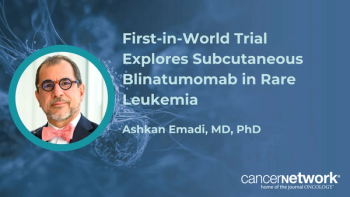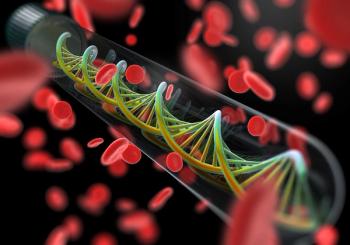
Study May Aid AYAs in Weighing Risks, Benefits of Clinical Trial Participation
Trends in favor of better clinical outcomes were observed for those on-trial in this retrospective matched cohort study of patients with cancer who were treated on a phase III clinical trial compared with those who received standard therapy and/or were off trial.
A study published in Cancer indicated that in a single institution experience, there was no significant difference observed in the 5-year overall survival or the occurrence of late effects among pediatric, adolescent, and young adult (AYA) patients with cancer who were enrolled in a clinical trial compared with those who were treated off trial.
However, researchers did observe trends in favor of better clinical outcomes for those on-trial, compared with patients treated off trial.
“Studies of the trial effect, including the current study, combine outcomes across many trials, and therefore do not make a statement regarding the benefit of any specific trial,” the authors wrote. “Nevertheless, these findings can help patients and their families to weigh the risks and benefits in clinical trial decision making.”
In the retrospective matched cohort study, researchers compared morbidity and mortality among 428 pediatric patients with cancer who were treated on a phase 3 clinical trial compared with those who received standard therapy and/or were off trial.
Patient age ranged from birth to 19 years. Between 2000 and 2010, those included in the study were diagnosed with either acute lymphocytic leukemia (ALL; n = 152 pairs), acute myeloid leukemia (AML; n = 24 pairs), rhabdomyosarcoma (n = 32 pairs), or neuroblastoma (n = 6 pairs), and received their first treatment at the Children’s Hospital of Philadelphia.
The 5-year survival rate did not differ between pediatric and AYA patients treated on a clinical trial versus those treated with standard therapy and/or off trial (86.9% vs 82.2%; P = 0.093). Although on-trial participants demonstrated lower odds of having higher mortality and morbidity composite scores, this did not reach statistical significance (32%; OR, 0.68; 95% CI, 0.45-1.03; P = 0.070).
“Although the current study did not demonstrate a positive trial effect at 3 years or 5 years, we observed beneficial trends for both overall survival and a composite of late effects or death in a direction favoring the patients treated on trial compared with those treated with standard therapy and/or off trial,” the authors wrote. “Observed trends are hypothesis generating only; however, these findings may be considered in light of biases in the design of the current study that favor a null effect.”
According to the researchers, 3 primary mechanisms for a positive trial effect have been proposed, including treatment, monitoring, and behavioral effects. It was suggested that consideration of each of these mechanisms could offer insight into the mixed findings of the reported study.
“Patients and families have many reasons for participating in clinical trials, including maintaining hope, receiving direct medical benefits, and helping future patients,” the authors wrote. “We believe the results of the current study provide valuable information that can inform clinical trial decision making for pediatric and AYA patients with cancer and their families as they balance the perceived risks of participation with benefits when considering enrollment in clinical trials.”
Given that the current study was a single institution study, the variability in care received for those on trial versus those treated off trial may have been limited. Researchers indicated that further studies are needed to highlight and understand the mechanisms of individual-level and population-level outcomes correlated with enrollment in cancer clinical trials.
Reference:
Schapira MM, Stevens EM, Sharpe JE. Outcomes Among Pediatric Patients With Cancer Who Are Treated On Trial Versus Off Trial: A Matched Cohort Study. Cancer. doi:10.1002/cncr.32947.
Newsletter
Stay up to date on recent advances in the multidisciplinary approach to cancer.












































